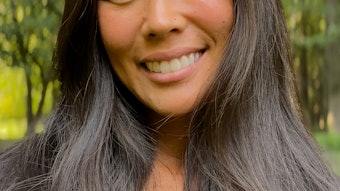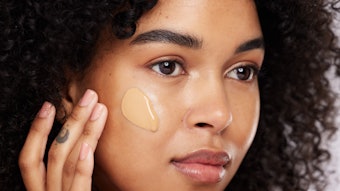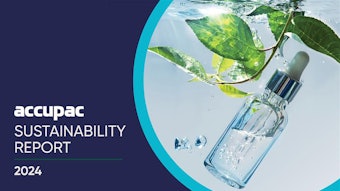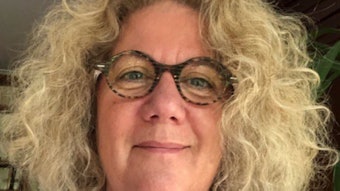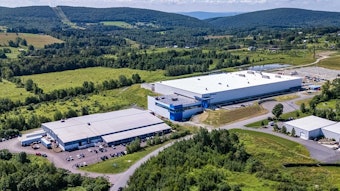
In an era of rapid technological advancements, market growth and fragmentation, supply chain realignments and consolidation, and more, beauty’s manufacturing space (turnkey, contract manufacturers, white label producers, etc.) has never been more dynamic.
To keep track of emerging innovations, services and capabilities, Global Cosmetic Industry has launched an ongoing series of roundups, providing brands with inspiration and information to support future product development or strategic production decision-making.
Contract Manufacturing Dynamics
 Daniel Krause, supply chain director for personal care manufacturer Federal Package, notes, “We’re finding that some naturally derived products have shifted in consistency. It could be related to labor availability, plant cultivation or creative sourcing strategies converging. Now we are in an environment where we have greater scrutiny. We’re no longer in a situation where we need to take whatever we can get.”Tatiana at Adobe Stock
Daniel Krause, supply chain director for personal care manufacturer Federal Package, notes, “We’re finding that some naturally derived products have shifted in consistency. It could be related to labor availability, plant cultivation or creative sourcing strategies converging. Now we are in an environment where we have greater scrutiny. We’re no longer in a situation where we need to take whatever we can get.”Tatiana at Adobe Stock
Peter Curtis, GAR’s director of R&D, notes that indie launches are softer than in years past, in part because of high interest rates that cause some brands to pull back. Others may be still burning through inventory and holding off on new development.
On the ingredient front, says Curtis, the industry is experiencing high inflation in material prices and shortages of select silicone technologies. At the same time, a number of ingredient sources have consolidated, leading to fewer supplier competitors. There have been long lead times as a result.
Curtis and GAR founder Tom Raffy explain, “In late 2022 lead times for common ingredients increased from 3 weeks to 6 weeks, and for some specialty ingredients [times went from] 12 to 24 weeks.”
Raffy and Curtis add, however, “Starting in the second quarter of 2023, lead times started to creep back to normal and by the end of 2023 the lead times finally shortened enough to give wholesalers the ability to manufacture and ship their products with normal lead times to retailers—which they love.”
Daniel Krause, supply chain director for personal care manufacturer Federal Package, has also noticed shifts in the beauty ingredient supply chain.
Krause notes, “We’re finding that some naturally derived products have shifted in consistency. It could be related to labor availability, plant cultivation or creative sourcing strategies converging. Now we are in an environment where we have greater scrutiny. We’re no longer in a situation where we need to take whatever we can get.”
Krause adds, “Beyond that, we find that our supply chains are mostly stable. Overall, we’ve seen a stabilization of supplies and routes that have evened out over time. We’re very close to the consistency we saw pre-COVID.”
When it comes to clean and sustainable beauty, GAR Labs’ Curtis explains that more brands are looking to use natural and green chemicals and to avoid materials such as mineral oil or preservatives that might fall on retailer blacklists. He adds that many brands are seeking to formulate toward Whole Foods, Sephora Clean or EWG requirements.
“The first free-from or no-no ingredients (as we call them) started about 10 years ago,” say Curtis and Raffy, “and that was sodium lauryl sulfate. Then came parabens, then silicones and lately any ingredient that has a number in its name, for example polysorbate-60—even though many of these no-no ingredients had a long history of being regarded as clinically safe. On that note, GAR Labs is not seeing any ingredient selection trends embracing safe and reliable synthetic ingredients, with the exception of the national brands.”
Other brands are seeking out unique upcycled, sustainable or otherwise exotic ingredients; however, price-sensitive brands may find some of these solutions inaccessible.
At the same time, says Curtis, the arrival of MoCRA may impact material selections, including the previously mentioned mineral oil and parabens.
Despite the challenges facing brands and their manufacturing partners, there are new areas of growth emerging in the industry.
Curtis and Raffy note, “One category [in which] we saw a lot of growth was natural stick deodorants, so much so that GAR Labs built an entire hot fill deodorant department. Second was fragranced body butters and a lot more requests for products containing plant-based ingredients.”
Market-attuned Innovations
New Patch & Mask Tech
 TaikiUSA’s expanding patch and mask offerings support science-backed and sustainable beauty launches.TaikiUSA
TaikiUSA’s expanding patch and mask offerings support science-backed and sustainable beauty launches.TaikiUSA
For instance, TaikiUSA’s expanding patch and mask offerings support science-backed and sustainable beauty launches. Taiki Group reportedly produces more than 150 million sachets yearly for brands of all sizes, housing sheet masks and patches that are purported to offer higher occlusion and deeper penetration than traditional skin care.
“Our research and development team works behind the scenes to make new mask technologies (such as microneedle and water-activated) and unique formulas available to skin care and beauty brands,” says Stacey Calhoun, TaikiUSA’s executive director of marketing. “We use sound science to determine the percentage of active ingredients to achieve outstanding, effective results.”
Calhoun adds, “Taiki’s product development team works to expand our sheet masks capabilities, such as biodegradable, non-woven and clean formulas with naturally derived ingredients. We strive for eco-friendly practices throughout the supply chain—from sourcing to packaging—to help brands achieve their eco-conscious goals.”
Lash Solutions
 Private label cosmetics manufacturer Lady Burd has launched new lash strip trios designed to be added to the outer third of the eye for a softer glam look, or layered for a full glam look that suits the wearer’s eye shape.Lady Burd
Private label cosmetics manufacturer Lady Burd has launched new lash strip trios designed to be added to the outer third of the eye for a softer glam look, or layered for a full glam look that suits the wearer’s eye shape.Lady Burd
The company has also launched a fast-drying, latex-free lash glue that reportedly “ensures a seamless application” and comfortable, precise wear. The glue is available in black and clear.
High-tech Production at Low MOQs
Fictiv recently produced m’Chel Haircare’s Day After Brush dry shampoo concept. The dry shampoo system reportedly “safely deodorizes, removes oil and leaves the hair looking freshly washed,” per the brand.
This patented brush applicator prevents the powder from directly going onto the scalp, which eliminates itchiness and dryness found from use of traditional aerosol dry shampoos.
Fictive oversaw the concept’s 3D printing, prototyping, injection molding, overmolding, compression molding, ultrasonic welding, tooling, product validation, screen printing, bristle grafting, design and commercial production, as well as handling logistics support, shipping oversight and sourcing.
 Fictiv recently produced m’Chel Haircare’s Day After Brush dry shampoo concept.Fictiv/m'Chel
Fictiv recently produced m’Chel Haircare’s Day After Brush dry shampoo concept.Fictiv/m'Chel
The process was reportedly powered by Fictiv’s AI technology platform and “virtually unlimited manufacturing capacity across a wide range of capabilities.”
“Most factories require minimum order quantities of 10,000 to 100,000 units during low-volume production," says Andy Richardson, VP of business development at Fictiv. “That's a large commitment for a new company looking to enter the market. At Fictiv, we don't put those types of restrictions on our customers. We focus on simplifying their full journey from prototyping to production.”
Stick Formats & Skin Care
Private label cosmetics manufacturer Lady Burd has launched smooth highlighting sticks that offer an effortless glide and a luminescent glow to the cheeks. The sticks come in two variants: shimmery lilac Lavender Lights and shimmery pink Pink Lights.
 Private label cosmetics manufacturer Lady Burd has launched smooth highlighting sticks that offer an effortless glide and a luminescent glow to the cheeks. The sticks come in two variants: shimmery lilac Lavender Lights and shimmery pink Pink Lights.Lady Burd
Private label cosmetics manufacturer Lady Burd has launched smooth highlighting sticks that offer an effortless glide and a luminescent glow to the cheeks. The sticks come in two variants: shimmery lilac Lavender Lights and shimmery pink Pink Lights.Lady Burd
The company also offers an array of recently introduced skin care formats, including a cleansing oil for removing impurities, makeup, sunscreen and sebum to leave users’ complexion feeling fresh and nourished. The formulation features olive and jojoba oils.
 Lady Burd's cleansing oil for removing impurities, makeup, sunscreen and sebum reportedly leaves users’ complexion feeling fresh and nourished.
Lady Burd's cleansing oil for removing impurities, makeup, sunscreen and sebum reportedly leaves users’ complexion feeling fresh and nourished.
Its squalane, comprising 100% of the named ingredient, nourishes dry skin, relieves feelings of tightness and reportedly helps reduce the appearance of fine lines caused by dehydration.
 Lady Burd’s bakuchiol serum offers benefits similar to retinol but without irritation. The serum reportedly helps to reduce the appearance of fine lines and wrinkles.Lady Burd
Lady Burd’s bakuchiol serum offers benefits similar to retinol but without irritation. The serum reportedly helps to reduce the appearance of fine lines and wrinkles.Lady Burd
Finally, Lady Burd’s bakuchiol serum offers benefits similar to retinol but without irritation. The serum reportedly helps to reduce the appearance of fine lines and wrinkles.
New Manufacturing Capabilities
In-house Testing Expansion
Federal Package recently doubled its in-house lab capacity and, overall, greatly increased its testing offerings. Global Cosmetic Industry magazine reached out to the company to learn more about what drove the enhancement.
“We have significantly increased our in-house testing capabilities to include challenge, stability and microbiology testing,” says Kristi Vinkemeier, VP of R&D and compliance, Federal Package. “We have made several key hires in 2023 to our R&D and quality assurance departments to build our capabilities and ensure that our products meet the highest standards possible. We have also redesigned our space to incorporate greater testing capabilities.”
Vinkemeier adds, “We have built out three state-of-the-art labs—for microbiology, analytical and R&D formulating—doubling our former capacity. We perform fully validated OTC product testing in-house. We have added two brand new HPLC (high-performance liquid chromatography) systems and we are installing a GC/MS, (gas chromatography/mass spectrometry) to test for contaminants. In light of MoCRA legislation, we are also gearing up to test allergens in-house.”
As for the drivers of the recent expansion, Jeffrey Martin, director of marketing, Federal Package, says, “Maintaining the highest quality standards for our products has always been important to Federal Package. By expanding our chemistry, testing, and quality capabilities, we will continue to maintain those high-quality standards, even as market conditions change. This also allows us to shorten turnaround times for our customers by having quick availability to testing and quality and shortening the feedback loop in formulation.”
Martin adds, “We want our customers to have confidence in the products we develop, even as MoCRA legislation looms over many brands. Ultimately, we see MoCRA as a great opportunity for brands, manufacturers, and service providers to get better and provide the best, safest, most effective products possible for consumers. This is why we are leaning so heavily into our science.”
A New Turnkey Service
 To kick off its turnkey service, Aptar debuted a ready-for-market collection, New Dawn, featuring formulas for the skin, scalp and hair.Aptar
To kick off its turnkey service, Aptar debuted a ready-for-market collection, New Dawn, featuring formulas for the skin, scalp and hair.Aptar
The combined services, based outside Paris, will offer brands the agility of startups and the industrial resources of a large-scale organization.
The service draws on the experience and know-how of Fusion Beauty Lab, an internal laboratory located in New Jersey in the United States. It will share its expertise and resources with the team in Paris to offer solutions that match Aptar’s qualitative packaging with advanced formulations.
The packaging available to clients will include PCR plastic, metal-free pumps and refill formats, all backed up by the manufacturer’s own circular practices to reduce carbon emissions and overall ecological impacts.
To kick off the service, Aptar debuted a ready-for-market collection, New Dawn, featuring formulas for the skin, scalp and hair.
New Dawn's Boost Me Up range comprises an anti-pollution, milky cleansing gel and an AHA serum skin illuminator, while Drop Me Up features apricot, raspberry and baobab oils for skin, hair and beard care.
The Face Me Up range includes a purifying mask and a hydrating mask for the face, while Hair Me Up features a soothing and a hydrating mask for the scalp and hair.
Finally, the Bubble Me Up collection includes a moisturizing and comforting gel activator.
New Dawn products are manufactured in France and are cruelty-free, vegan and dominated by natural ingredients.
Formulations are housed in the company’s premium packaging.
“Our clients were asking us to expand our value proposition to include formula expertise," says Benoit Mirandel, director of Turnkey Solutions. "With Turnkey Solutions, we are now able to offer a complete beauty service for brands of all types and sizes."
Marketing manager Savéria Guelfucci notes, “We are a dynamic collective of disruptors and brand accelerators, specializing in every aspect of product development–from formulation and packaging, to regulatory and fulfilment. As part of the Aptar family, we have the know-how, industrial capacity and infrastructure of a multinational beauty company, but we also identify with the out-of-the-box thinking of young indie brands.”
K-sunscreen
 The move strengthens the manufacturer's K-sunscreen formulation lineup, including cushions and sticks, as well as oils, creams and lotions. Korean sunscreens typically combine skin care and sunblock efficacy with an accessible pricepoint.mariarom at Adobe Stock
The move strengthens the manufacturer's K-sunscreen formulation lineup, including cushions and sticks, as well as oils, creams and lotions. Korean sunscreens typically combine skin care and sunblock efficacy with an accessible pricepoint.mariarom at Adobe Stock
The move strengthens the manufacturer's K-sunscreen formulation lineup, including cushions and sticks, as well as oils, creams and lotions. Korean sunscreens typically combine skin care and sunblock efficacy with an accessible pricepoint.
The OTC lab is housed within the company's research and innovation center in South Korea; the company, which has obtained approval from the U.S. FDA, can produce OTC sun care products in South Korea and New Jersey.
Chun-ho Park, vice president of the Cosmax R&I center, stated, "In response to the increasing demand from Korean and global clients to enter the U.S. sun care market, we have established OTC Lab." He added, "Based on our accumulated expertise in OTC sunscreen products manufacturing since 2016, Cosmax will continue to innovate products in line with the trends and regulations of the U.S. market."
New R&D and Brand Innovation Services
Manufacturer and incubator Cohere Beauty has launched the Innovation Collaborative, a full-service innovation platform that will support customer innovation with R&D, brand innovation and operational services.
The Innovation Collaborative will help clients keep abreast of the latest ingredients, technology and formulations in the service of generating innovation unique to client brands' identities.
 Manufacturer and incubator Cohere Beauty has launched the Innovation Collaborative, a full-service innovation platform that will support customer innovation with R&D, brand innovation and operational services.Cohere Beauty
Manufacturer and incubator Cohere Beauty has launched the Innovation Collaborative, a full-service innovation platform that will support customer innovation with R&D, brand innovation and operational services.Cohere Beauty
Cohere Beauty's Innovation Collaborative includes Tony Kirk, chief operating officer; Chad Conger, SVP front end innovation; and Shari Matras, strategic innovation adviser.
“As Cohere Beauty constantly aims to exceed our brand partners' expectations, the Innovation Collaborative's purpose is to embed itself within the DNA of each brand customer throughout the entire innovation journey in order to seamlessly translate their product vision into reality,” says CEO Christine Staples. “The Innovation Collaborative also fills a gap—as the beauty industry continues to evolve—by providing a comprehensive, full-service approach to innovation through best-in-class support and guidance that sets our brand customers apart.”
Staples adds, “The Cohere Beauty Innovation Collaborative is home to an exceptional team bringing forth not only robust brand experience and expertise but also a unique perspective having lived in their customers' shoes. This understanding enables our team to offer cutting-edge solutions that turn our brand partners' dreams into reality.”
New Beauty R&D Services
Accupac’s Cobalt Labs features a newly renovated R&D space at the company’s Lakewood, New Jersey facility “designed to ignite creativity and transform ideas into tangible products,” according to the company.
Encompassing development services for skin care, body care, oral care, hair care, fragrance, OTC and medical device categories, Cobalt Labs is designed to carry brands through product development into the scale up capabilities of Accupac.
 “At Cobalt Labs, our mission is clear: to empower our customers to bring their visions to life,” says Chad Holzer, CEO. “By integrating our laboratory space with dedicated areas for idea generation and brainstorming, we’ve created an environment where creativity and technical expertise can converge.”Cobalt Labs
“At Cobalt Labs, our mission is clear: to empower our customers to bring their visions to life,” says Chad Holzer, CEO. “By integrating our laboratory space with dedicated areas for idea generation and brainstorming, we’ve created an environment where creativity and technical expertise can converge.”Cobalt Labs
The facility comprises a formulation laboratory featuring multiple mixer types and hot plate setups for the compounding of various formula iterations. The site also includes energy-efficient, large-capacity stability chambers that allow for in-depth evaluation and stress testing. By assessing the behavior of formulations across different temperature and time points, these resources help brands mitigate risks and enhance product reliability before scaling up for pilot work.
 The facility comprises a formulation laboratory featuring multiple mixer types and hot plate setups for the compounding of various formula iterations. The site also includes energy-efficient, large-capacity stability chambers that allow for in-depth evaluation and stress testing. By assessing the behavior of formulations across different temperature and time points, these resources help brands mitigate risks and enhance product reliability before scaling up for pilot work.Cobalt Labs
The facility comprises a formulation laboratory featuring multiple mixer types and hot plate setups for the compounding of various formula iterations. The site also includes energy-efficient, large-capacity stability chambers that allow for in-depth evaluation and stress testing. By assessing the behavior of formulations across different temperature and time points, these resources help brands mitigate risks and enhance product reliability before scaling up for pilot work.Cobalt Labs
Cobalt Labs is staffed by formulators, trend experts and product development specialists with a collective eight decades of experience across categories. These experts can help customers develop products from the ground up or take ready-made concepts for scale-up and launch.
“At Cobalt Labs, innovation, collaboration, and sustainability converge to shape the future of formulation development,” says Chavez. "We invite our partners and stakeholders to join us on this journey as we strive to create products that not only meet the needs of today but also contribute to a brighter and more sustainable tomorrow.”
New Manufacturing Technologies
 Marchesini offers tube-filling systems and much more.Marchesini
Marchesini offers tube-filling systems and much more.Marchesini
Beyond the new lipstick inspection system, Marchesini offers machines such as turbo-emulsifiers from Dumek and Axomatic, a complete line for filling and packaging tubes, a liquid and cream filling line produced in partnership with Axomatic and Vibrotech, a soft mold lipstick machine built by Cosmatic, a fragrance cartoning machine from V2, and a rotary monobloc machine for filling bottles by Rejves Machinery.
 ProSys has launched its range of LB semi-automatic hot melt filling lines for lip balms. The filler models include a semi-automatic hot melt filling line to fill, cool and cap lip balm sticks at a machine cycle rate of up to 30 (LB30; pictured) or 60 (LB60) parts per minute.ProSys
ProSys has launched its range of LB semi-automatic hot melt filling lines for lip balms. The filler models include a semi-automatic hot melt filling line to fill, cool and cap lip balm sticks at a machine cycle rate of up to 30 (LB30; pictured) or 60 (LB60) parts per minute.ProSys
The range features a manual loading station with an angled guide that allows for easy loading, per the company. A quick-change puck mounting system enables toolless changeovers among different sizes.
Both LB models offer puck tooling that fits most 0.15-ounce 500 style lip balm tubes, including those used by Inpres, Federal, CCP and Sapona.
An on-board cap sortation station features a gravity cap track to present caps for the auto capping station and the positive cap sap station ensures caps are pressed on completely.
The company also offers the RT tube filling and sealing systems that offer automated filling and closing of squeeze tubes. The system uses hot air tube sealing and reportedly works with all plastic and laminate tubes.
The RT 60 model is a medium-speed unit that offers automated filling and closing of up to 70 squeeze tubes per minute, per the company.
The RT 90 is a high-speed unit that can fill up to 90 tubes per minute.
Both units include a tube bulk bin, load ramp, orient, fill station and closure stations for plastic, laminate or aluminum tubes.
ProSys’ ProTrac high-speed fully automated system for filling and closing squeeze tubes is available in models that can fill from 140 to 220 tubes per minute.
The system features twin-head, fully automatic tube filling and closing, as well as tube bulk storage and feed, dual load stations, dual orient stations, dual servo fill stations and dual closure stations.

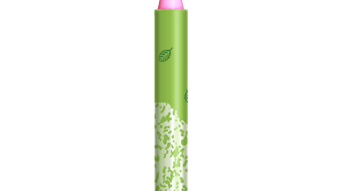


![According to the Personal Care Products Council, 'Between 1990 and 2022, the [U.S.] personal care products industry generated a trade surplus every year, reaching $2.6 billion in 2022...'](https://img.gcimagazine.com/mindful/allured/workspaces/default/uploads/2025/08/adobestock-353393403.MryFiCWzOJ.jpg?auto=format%2Ccompress&fit=crop&h=191&q=70&w=340)

